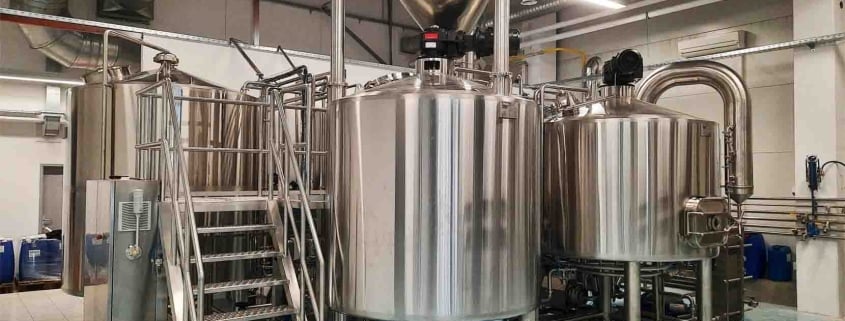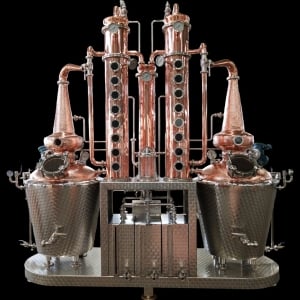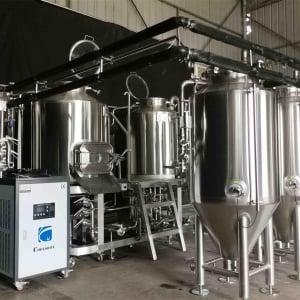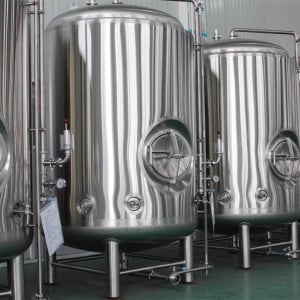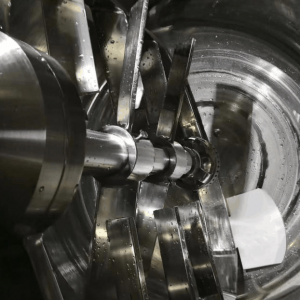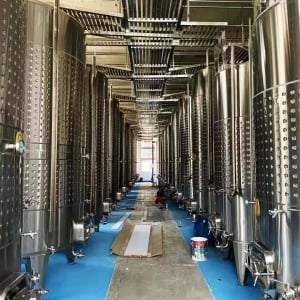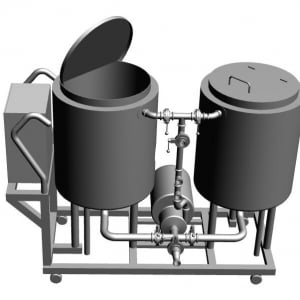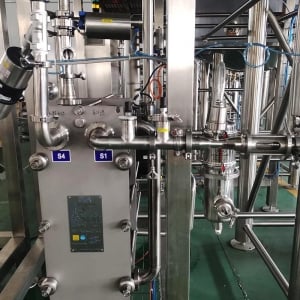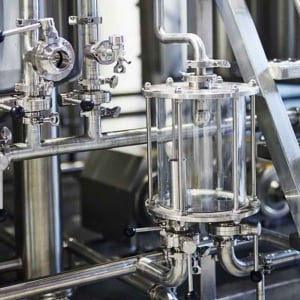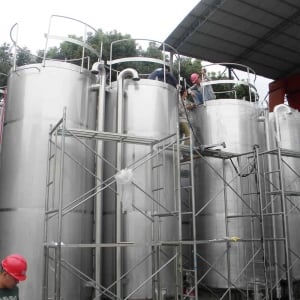Craft Beer Equipment for Sale
Craft beer has exploded in popularity in recent years, with a growing appreciation for unique flavors and independent breweries. If you’ve ever dreamed of brewing your own craft beer at home, you’re in luck! There’s a wide range of craft beer equipment available for sale, catering to both beginner and experienced brewers. This guide will walk you through everything you need to know about selecting the perfect setup for your brewing adventures.
Craft Beer Equipment Overview
Craft beer brewing equipment encompasses all the tools and vessels required to transform raw ingredients – hops, malt, water, and yeast – into delicious beer. While the basic brewing process remains consistent, the level of sophistication in equipment can vary greatly. Homebrew equipment ranges from simple, single-vessel setups to elaborate multi-vessel systems with precise temperature control capabilities.

Craft Beer Equipment Guide
Here’s a breakdown of the essential equipment you’ll need to brew craft beer at home:
| Equipment | Description |
|---|---|
| Brew Kettle | A large pot used to boil the wort (unfermented beer) and hops. Stainless steel kettles are preferred for their durability and ease of cleaning. |
| Mash Tun (Optional) | A vessel for steeping crushed grains in hot water to convert starches into sugars, creating the wort. Some brewers use their brew kettle for mashing, while others prefer a dedicated mash tun. |
| Wort Chiller | Cools the wort rapidly after boiling, preventing unwanted flavors and aromas. Immersion chillers and counterflow chillers are popular options. |
| Fermentation Bucket | A food-grade container where the wort ferments with yeast, transforming sugars into alcohol and carbon dioxide. Glass carboys and plastic buckets are commonly used. |
| Airlock | Allows CO2 to escape from the fermenter during fermentation while preventing contamination by airborne organisms. |
| Bottling Bucket (Optional) | A secondary fermentation vessel used to prime beer with sugar for carbonation before bottling. |
| Siphon | Transfers liquids between vessels without disturbing sediment. |
| Bottles and Sanitizer | For bottling your finished beer, you’ll need sanitized glass bottles and a bottle capper to seal them. |
| Hydrometer | An instrument used to measure the specific gravity of your wort and beer, which helps determine the alcohol content. |
Additional Equipment (Optional):
- Thermometers: For monitoring temperatures throughout the brewing process.
- Refractometer: An alternative tool for measuring wort and beer specific gravity.
- Bottling Equipment: Bottle fillers, cappers, and rinsers can streamline the bottling process.
- Kegging Equipment: For a more professional setup, kegs and a kegging system allow you to dispense beer on tap.
Craft Beer Brewing Process
The craft beer brewing process can be broken down into four main stages:
- Mashing: Crushed malt grains are steeped in hot water within a specific temperature range, activating enzymes that convert starches into fermentable sugars.
- Lautering: The sweet wort (liquid extract containing sugars) is separated from the spent grains (used malt).
- Boiling: The wort is boiled with hops, adding bitterness, aroma, and acting as a natural preservative.
- Fermentation: Yeast is pitched into the cooled wort, and fermentation begins, transforming sugars into alcohol and CO2. After fermentation is complete, the beer is conditioned, carbonated (if bottling), and then kegged or bottled for enjoyment.
Choosing the Right Equipment:
The ideal craft beer equipment setup depends on several factors, including your budget, brewing experience, desired batch size, and the level of automation you prefer.
Beginner Brewers:
For beginners, a simple extract brewing setup is a great way to get started. Extract brewing uses pre-made malt extract, eliminating the need for mashing. Starter kits typically include a brew kettle, fermenter, airlock, siphon, bottles, sanitizer, and basic instructions.
Experienced Brewers:
As your brewing skills progress, you may graduate to all-grain brewing, which offers more control over the brewing process. This typically involves a dedicated mash tun and a wort chiller.
Advanced Brewers:
Advanced brewers may explore multi-vessel brewing systems with features like automated temperature control and integrated pumps for transferring liquids.
Craft Beer Equipment Features to Consider
Beyond the basic functionality, craft beer equipment boasts a range of features that can enhance the brewing experience. Here are some key considerations:
- Material: Stainless steel is the most common and preferred material for brewing equipment due to its durability, ease of cleaning, and resistance to corrosion. High-quality plastic can also be a viable option for some equipment, particularly fermenters.
- Volume: As mentioned previously, consider the batch size you intend to brew. Most homebrew equipment caters to 1-gallon to 5-gallon batches.
- Heating Source: Brew kettles come with various heating options, including electric, propane, and induction. Electric kettles are popular for indoor brewing due to their ease of use and precise temperature control. Propane kettles offer a more powerful heat source, ideal for larger batches or outdoor brewing. Induction kettles heat rapidly and efficiently but require compatible cookware.
- Insulation: Insulated kettles help retain heat, improving efficiency and temperature stability during the brewing process.
- Valves and Fittings: Ball valves are a common choice for controlling liquid flow due to their ease of use and cleaning. Look for equipment with high-quality, leak-proof valves and fittings.
- Automation Features: More advanced equipment may include features like digital temperature controllers, automated timers, and pumps for transferring liquids. These features can simplify the brewing process and improve consistency.
Craft Beer Equipment Price Range
The cost of craft beer equipment varies significantly depending on the complexity of the setup, brand, and features. Here’s a general breakdown of pricing for common equipment categories:
| Equipment Category | Price Range (USD) |
|---|---|
| Beginner Kits | $50 – $200 |
| Extract Brewing Equipment (Individual Pieces) | $20 – $100+ per item |
| All-Grain Brewing Equipment (Individual Pieces) | $50 – $500+ per item |
| Kegging Systems | $100 – $500+ |
Remember:
- Prices can fluctuate depending on sales and promotions.
- Expect to invest in additional accessories like thermometers, hydrometers, and cleaning supplies.
Craft Beer Equipment Installation, Operation & Maintenance
Most homebrew equipment is relatively user-friendly and requires minimal installation. Many kettles come pre-assembled, while fermenter buckets and carboys simply need to be sanitized before use.
Operation:
Operating brewing equipment involves following established brewing procedures and recipes. There are numerous online resources and homebrew clubs that can provide guidance and support.
Maintenance:
Proper cleaning and sanitation are essential for preventing contamination and ensuring the longevity of your equipment. Thoroughly clean and sanitize all equipment after each use. Many sanitizers are readily available at homebrew shops.
Choosing a Craft Beer Equipment Supplier
When selecting a supplier for your craft beer equipment, consider the following factors:
- Product Selection: Does the supplier offer a wide range of equipment to suit your needs and budget?
- Reputation: Research the supplier’s reputation for quality products and customer service.
- Prices: Compare prices across different suppliers to find the best value.
- Shipping: Factor in shipping costs when comparing prices.
- Customer Service: Look for a supplier with knowledgeable and responsive customer service to assist you with any questions or troubleshooting.
Here are some reputable online retailers and homebrew shops that sell craft beer equipment:
- Northern Brewer (https://www.northernbrewer.com/)
- Midway Homebrew & Wine Supply (https://www.midwestsupplies.com/)
- MoreBeer! (https://www.morebeer.com/)
- Austin Homebrew Supply (https://austinhomebrew.com/)
- Homebrew Shops: Many local homebrew shops offer equipment, ingredients, and brewing advice.
Craft Beer Equipment: Pros and Cons
Pros:
- Brew Your Own Beer: The satisfaction of crafting your own unique beers is an unmatched experience for homebrewers.
- Experimentation: Homebrewing allows you to experiment with different ingredients, recipes, and brewing techniques to create your own signature beers.
- Cost-Effective: Over time, brewing your own beer can be more cost-effective than continually buying craft beers at the store, especially if you brew larger batches.
- Learn a New Skill: Homebrewing is a rewarding hobby that teaches you about the science and artistry of brewing beer.
- Sense of Community: The homebrew community is welcoming and supportive, offering resources and camaraderie for brewers
Cons:
- Time Commitment: Brewing beer takes time and dedication. Each stage of the brewing process requires attention, from steeping grains to bottling or kegging the finished beer.
- Space Requirements: Homebrew equipment requires dedicated space for storage and use. Consider your available space before investing in equipment.
- Initial Investment: The initial cost of equipment, ingredients, and sanitizers can be significant, especially for all-grain brewing setups.
- Trial and Error: Like any new skill, homebrewing involves a learning curve. Expect some initial batches to not turn out perfectly. However, troubleshooting and practice are part of the enjoyment for many brewers.
- Cleaning and Sanitation: Maintaining a clean and sanitized brewing environment is crucial to prevent contamination. This requires regular cleaning and sanitizing of equipment.
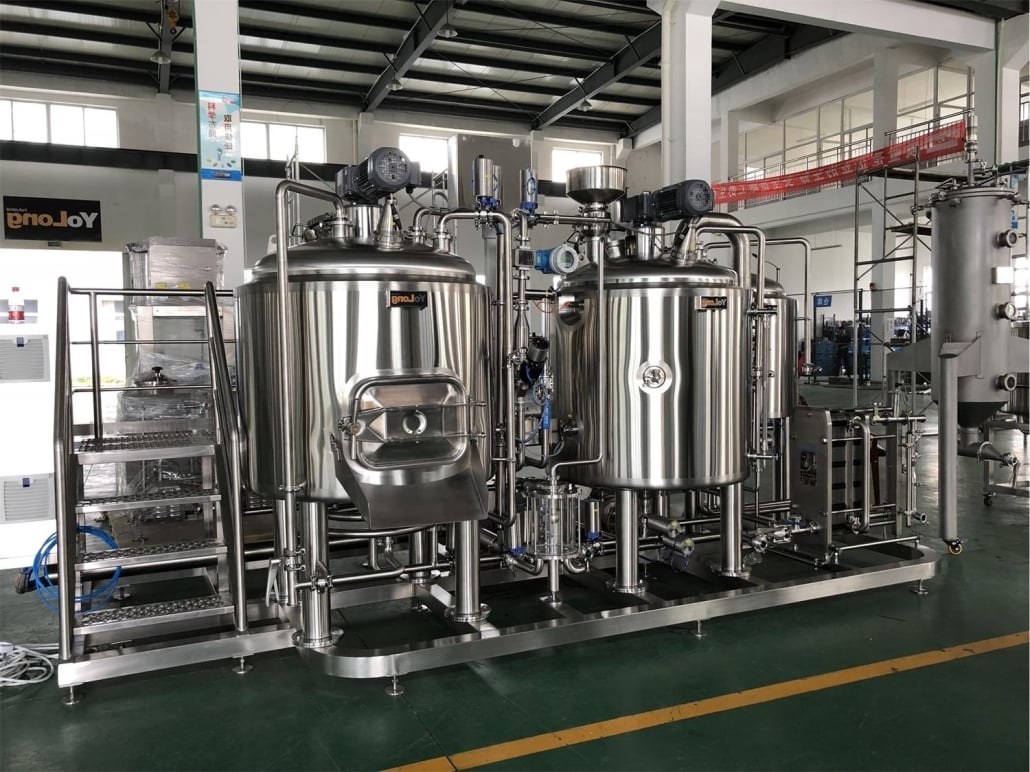
FAQs
Here are some frequently asked questions (FAQs) about craft beer equipment:
Q: What is the best type of craft beer equipment for beginners?
A: For beginners, a starter kit for extract brewing is a great way to get started. These kits typically include all the essential equipment for brewing a small batch of beer and come with clear instructions.
Q: Can I brew beer in my apartment?
A: Yes, brewing beer in an apartment is possible, provided you have adequate space for equipment and ventilation. Electric kettles are ideal for indoor brewing due to their safe and controlled heat source. Be mindful of potential noise and odors during brewing, and check your apartment lease for any restrictions.
Q: How much does it cost to brew my own beer?
A: The cost of brewing your own beer varies depending on the type of equipment, ingredients, and batch size. Starter kits can cost around $50-$200, while individual equipment pieces for extract brewing typically range from $20 to $100+. All-grain brewing equipment can cost more, with individual pieces ranging from $50 to $500+. Expect to invest in additional supplies like sanitizers and thermometers.
Q: Where can I learn more about homebrewing?
A: There are numerous resources available to learn more about homebrewing. Here are a few suggestions:
- Online homebrew communities and forums: These platforms offer a wealth of information, tips, and recipes from experienced brewers.
- Homebrew clubs: Many cities and towns have active homebrew clubs that host meetings, competitions, and educational workshops.
- Books and websites: There are many excellent books and websites dedicated to homebrewing, offering detailed instructions and guidance for brewers of all experience levels.
By carefully considering your needs, budget, and available space, you can select the perfect craft beer equipment setup to embark on your homebrewing journey. With dedication and practice, you’ll be brewing delicious craft beers to enjoy and share with friends and family in no time.

